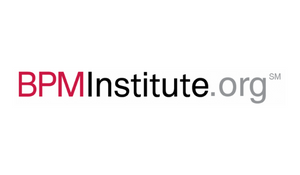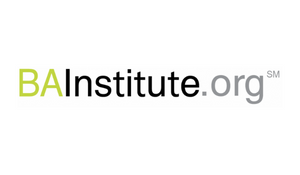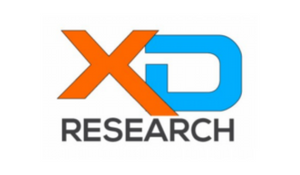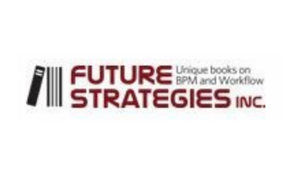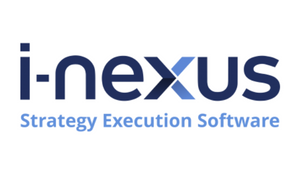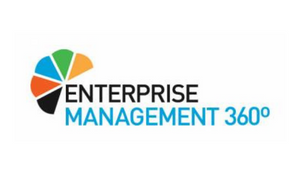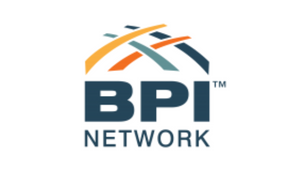

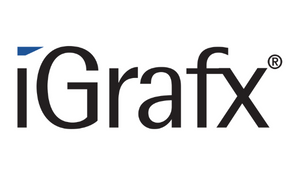
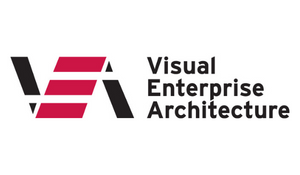
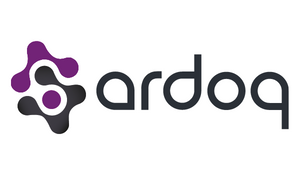
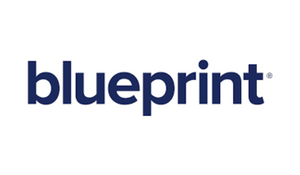
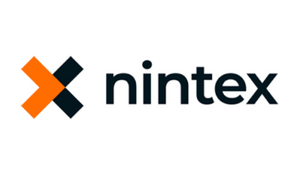
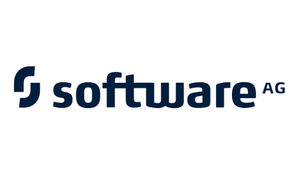


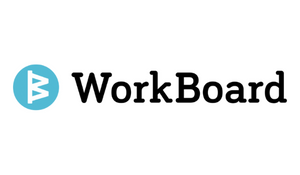
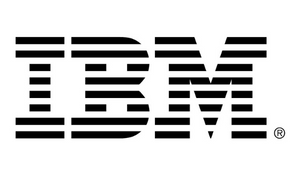






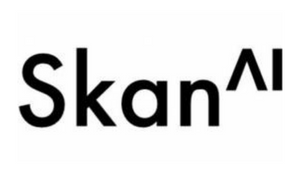

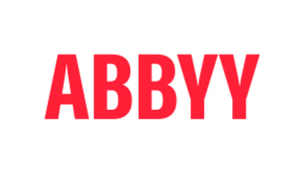

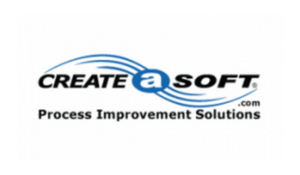



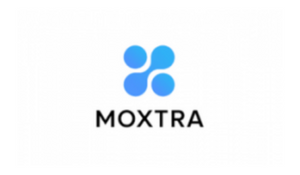
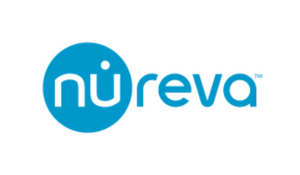
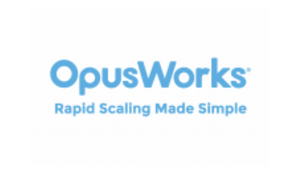
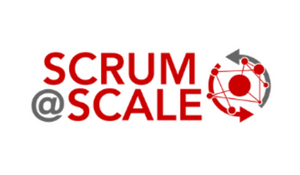
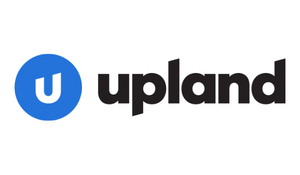
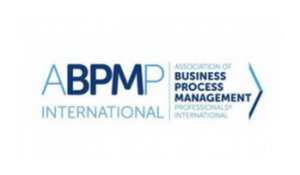
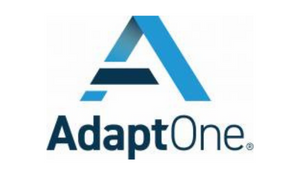
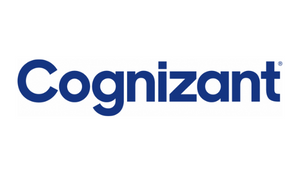
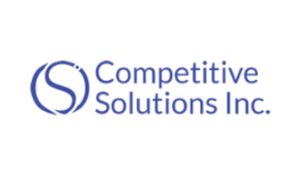
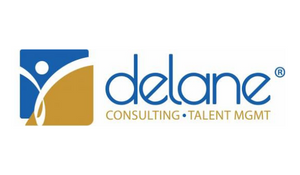

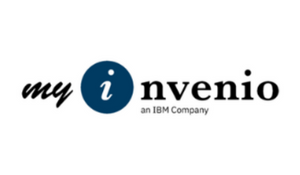
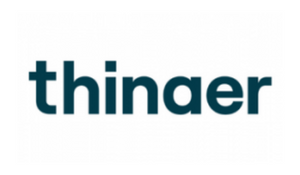
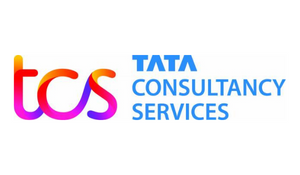
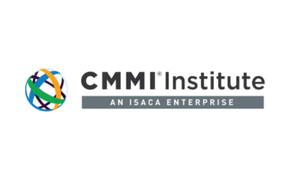
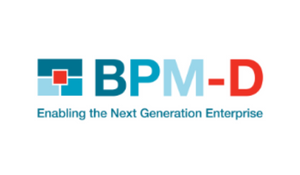

Courtesy of Electrolux's Hao Dinh below is a transcript of his speaking session on 'The Human Side of Digital Transformation' to Build a Thriving Enterprise that took place at Digital Workplace Transformation Live.
.png?width=300&height=175&name=BLOGS%20COMPANY%20LOGO%20(67).png)

Session Information:
The Human Side of Digital Transformation
The benefits of Digital Transformation is no longer in question. The priority now is to deliver on the quick execution of Digital Transformation initiatives. However, there are challenges and they are not technology based. The human capital component, specifically the knowledge, social and emotional side of the human mindset, is the obstacle to overcome in order for Digital Transformation to succeed.
During this presentation you will gain insights on the following areas:
Session Transcript:
Indicated through my career. you go to school, in a certain area. You come out of school You get a job, and then in that job, you get on the job training to get better at that job, And you progress up into your career. Again, the standard way in the past of how we've done education.
If you look on the right-hand side, That is more indicative of what's going on today in the digital world. You come out of school, and you could possibly go find a job in the area that your book signed. But in digital, that doesn't have to be the case, you can actually go do something adjacent to your degree in a digital world. And, as you progress through your job and your career, Many think many times in a digital space, you jump from one opportunity to the other. Where it's a different type of skill set.
So, the training that needs to be, or it needs to occur in this digital world is not linear, but it's actually really, you know, it really adaptive to today's world where you can change functions, you can change jobs, you can actually change industries, where we need to make sure that, when we do this type of digital transformation, we adapt our, our education, our train, you so that people that can come in from different industries, and different skill sets, can pick up the right skill set to do a good job in the digital space that we're doing in our, in our organization.
So, around intelligence and skills, again, human capital. Previously, it was OK for people to come in from 9 to 5, and do the same thing over and over, because that was their job. And really have what we call this fixed mindset. Where you really aren't challenged at that often in your job, because you're doing the same thing over and over, and you really not asked staff to challenge the status quo.
Whereas, we know that in the digital transformation world, every day, now, due to due to technology your job, your industry, your copy is there's an opportunity for it to be disrupted. So that's why we need to help our employees have what we call a growth mindset. And this mindset helps them embrace for all the challenges associated with all this disruption that's coming in through digital transformation, also help them understand that it's OK to not know something, but to have a mindset where you know, you can go learn it. That's the skill set, and a mindset that we want to have in our employees. So, again, going from this fixed mindset to the growth mindset.
When it comes to our employees intelligence and skills, and around health. And this is very important and something that we do not do a good job of when it comes around digital transformation. So, just imagine what we were doing today, We're bringing technology around automation, robotics, artificial intelligence, and, in the mind of our employees, their mental mind is thinking, How is this new technology going to take my job?
And there are situations where, yes, this new digital technology is going to replace them, or is actually going to make their job easier and better. So, we need to get ahead of the curve and actually addressed this mental health that our employees have associated with these new technologies. Whereas, you know, if it is going to affect their job, explaining to them how it's going to affect their job. And if it is going to replace them, they'd talk about how we're going to re skill them, upskill them in other opportunities in the job. Again, to make sure that our employees have this right mental mindset, when it comes to our digital transformation.
Also, associated with health is the emotion side of things.
Emotional intelligence is very important now when it comes to us for corporations to be successful, same thing for our employees. We need to work with them around their emotions.
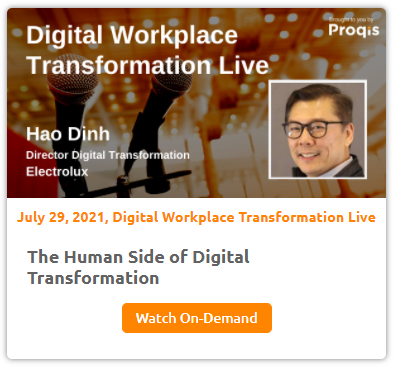 And as I mentioned before, if you were automating a factory guarantee, you 99% of the time, the factories are always going to have an emotional response of a fear of scare around this technology. Because again, they're afraid they're gonna lose their jobs. This is where we need to address this head on, and talk about how this new technology of automation and robotics is going to make the company better. And how they are going to be involved in this process to, again, to incorporate this new type of technology, to make the company better. And I'll talk about some examples of how to do that.
And as I mentioned before, if you were automating a factory guarantee, you 99% of the time, the factories are always going to have an emotional response of a fear of scare around this technology. Because again, they're afraid they're gonna lose their jobs. This is where we need to address this head on, and talk about how this new technology of automation and robotics is going to make the company better. And how they are going to be involved in this process to, again, to incorporate this new type of technology, to make the company better. And I'll talk about some examples of how to do that.
So, the thing that I want to talk about is why aren't companies focusing on this human capital with that talked about?
And that's because if you really talk to people around digital transformation, you're always talking about the technology because that's the exciting part of it, right? Hey, we're going to use artificial intelligence to do this, in that. We're gonna use Blockchain to disrupt the banking industry. We're going to use, you know, drone technology to enable this type of new business models and so forth.
That's exciting, But when you start talking about, hey, You know, we need to start thinking about our employees and around their training, their education, their mindsets, and their mental and emotional health.
Unfortunately, that's not the exciting part when it comes to digital transformation.
And also, it's very hard to measure, you know, the human capital improvements that we need to do.
So, there's a lot of learnings that we're going through it as, as an industry around digital transformation, to figure out how we can make it more exciting to talk about human capital, and, most importantly, how to measure the success.
So, the other thing I want to talk about is really into the mindset around our employees. Right? The fact that our mind is a billion year, old Oregon, that it's number one role, is to make sure that, that it protects us and anything that stat that challenges, the status quo is considered a threat.
So, anytime we do digital transformation, it requires changing something that, in the mind, is associate with changing a status quo, and our mind, it, it automatically identifies that change of status quo. Our digital transformation is something that it doesn't want to do.
So that's why it's very important for us, in order for us to get our employees bought in on digital transformation, and wanting to do it, that we need to address this, this mindset, where the brain is not going to automatically want to accept.
And there are some things I'll talk about, an upcoming slides, where we can help our employees change that mindset.
So, let's actually talk about some examples around how I've been able to focus on human capital to drive digital transformation success.
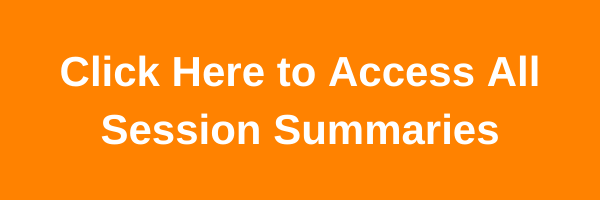 The use case is, we have factories and pretty much everyone out there that's making stuff that has factories. And in this use case, I want to use big data, which is all this digital data that we're getting from, IOT sensors on our machines, augment that with augmented reality, artificial intelligence, so that we can improve the way our machines operate. And actually improve the way our our maintenance engineers. In this case, I had about 100 maintenance engineers that will be affected by this digital transformation I'm working on. So, the combination of Big Data Plus AI to help improve the work that the maintenance engineers are doing.
The use case is, we have factories and pretty much everyone out there that's making stuff that has factories. And in this use case, I want to use big data, which is all this digital data that we're getting from, IOT sensors on our machines, augment that with augmented reality, artificial intelligence, so that we can improve the way our machines operate. And actually improve the way our our maintenance engineers. In this case, I had about 100 maintenance engineers that will be affected by this digital transformation I'm working on. So, the combination of Big Data Plus AI to help improve the work that the maintenance engineers are doing.
So the first thing that we did was we wanted to make sure that we involve the maintenance engineers. So we engage them and say, hey, what are some of the biggest headaches and machines that you have?
They identified the top biggest machine headaches, they had the machines that kept on breaking, and they had no idea why.
And that was good, because, again, we brought them along into scoping out exactly what we wanted to do around this.
AI was big data digital transformation, then we identified that maintenance engineers that were responsible for those machines, and we made sure, they got training from day one, and throughout the entire project, on exactly what is big data, What is artificial intelligence, and how their skill sets, combined with big data, and AI, will make predictive maintenance of the machines better.
Then, from an intelligence, the skill sets, again, this is the growth mindset.
We started bringing in the concept of this thing called MVP, which is Minimum Viable Products, where we experimented and try things that we know from the very beginning is won't be 100% and we're gonna have some failures. But we, we taught them that it's OK. We need to have these failures and these learnings in order to make our digital transformation AI plus big data successful. So we taught them that it's OK to have a mindset of growth where you don't have to be perfect all the time.
And around emotional and mental mindset, what we did is we made sure that the employees or the maintenance engineers realized that they were critical for this. They were, they weren't going to be replaced by AI, big data, but, most importantly, they were critical for the success associated with this digital transformation. So, so, a little bit more detail around how we did these types of areas of focus around human capital.
So, the first thing we did, was, we said, you know what, let's take all the data that we have in our machine, that these three machines that keep on breaking, we're going to run them through the AI engine without involving our maintenance engineers at all.
And what came out of it with some recommendations, and how to prevent certain failures around those machines? And those recommendations were, were all incorrect, I think. You know, I think it is like 0. 1 of them, I think, was something that when we had our maintenance juniors look at it, said, Yeah, that made sense, the other, 99%, were just no recommendation. That didn't make any sense. So when we did that, we just wanted to highlight to our maintenance engineers that we did this without them. This would fail.
So again, just a way to show them that they report in the process, their mental, emotional health that we wanted to address.
Then, what we did is, we took the data with the artificial intelligence, and we involved, the maintenance engineers, aren't doing our prototyping, right, developing the algorithms that are needed to predict when these machines could possibly fail using AI, and then making sure they don't fail.
And when we did this, we were able to develop recommendations that were about 30% accurate, which was pretty good, compared to, previously, we had no idea how to fix how to prevent these machines from failing.
So, again, involving the maintenance engineers through the process, having them understand that we're going to a learning process. Failures and learning from the failures really helped them understand why we're doing this, and got them engaged, and actually helping out during this digital transformation.
And then, lastly, we wanted to highlight to them, again, that these predictions are just pieces of insights, That they are, the ones that make the final decisions, right? The, the artificial intelligence and big data, And say, hey, we recommend you do maintenance on this piece of this machine right now, because there's a high probability, 80% probability that's going to fail in the next two months.
The maintenance engineers need to look at that from their gut feel, from their experience and from their intelligence, determine if that's the right thing to do or not. Again, making sure that they understand that they are critical to this digital transformation, using AI, to do predictive maintenance, and when they were involved in that decision, we were able to increase the availability of those three machines from failing again, increase the uptime associated with those three machines, which is very beneficial for the organization.
So, just to recap, you know, I provided a definition of exactly, what is human capital, and, and, you know, Human Capital is, our, the value put around our employees, intelligence, their skills, their education, their training, and then, let's not forget, their mental and emotional health then discussed, you know, Why don't companies focused on this? And this because, it's not the exciting piece of digital transformation, and it's very hard to measure? And then, walk you through some examples of how I focus on human capital to be successful, in a digital transformation initiative that I lead.
So, with that said, I want to thank you for your time, and, just also want to highlight that. I have other examples of how we've used, you know, technology, and human capital, and so forth around driving digital transformation on my website. ... dot me. And I love connecting with people. So I'm on LinkedIn. Please connect with me, and, and I look forward to answering questions, and also having some discussions with the group here.
Terrific. Wow, And this gives us an opportunity for the audience to ask you all sorts of questions related to this topic, which is a very important topic. We talk about, of course, digital transformation and the subject of technology technology. technology is always so present.
-1.png?width=600&name=Event%20Email%20Graphic%20Virtual%20Conferences%20(17)-1.png) And the 1 1 comments from William Fuller here that I'll share with you is that mental and emotional health really are the basis of employee engagement and contribution to innovation.
And the 1 1 comments from William Fuller here that I'll share with you is that mental and emotional health really are the basis of employee engagement and contribution to innovation.
And this topics are far more important than which technologies specifically selected, And many comments like this.
But the practice is hard.
Because we have consulting companies and technology companies going directly to the seat and selling to them that if they implement this technologist, they're going to have this Roy, this value creation. And in those discussions, they don't talk about people very much.
How can you, how can you compete with that in knowing the organization? You are now, you know, leading the digital transformation in an organization.
And I'm sure you suffer those pressures as as well for cost reductions, for revenue increases. And people become a bit of a byproduct of that process. How you, how do we get the C suite attention on this topic?
Yes. So, very good question. So, right now, you can actually go on the internet and look at digital transformation framework best practices, and their studies by Steadies by around the top consulting companies out there, that tell you that, you know, they've done research now for the past 10 or 15 years. And to your point, it's not about the technology, it's about the people. So, with that said, what I've been able to do is, take that information and show it to our executives. Say, Hey, you know, we talk about technology and don't get me wrong, We have to talk about technology.
But, it's shown here that 80% of digital transformation projects fail, Not because of the technology, it's because we don't focus on the people.
So, now that we have that credibility or information, we can start bringing that up to the senior leader to say, Yeah, we need to carve out time to talk about the human capital.
So, I've been able to, successfully to do that, because, again, as you mentioned, these consulting companies go in and they sell, but, they're also the ones saying right now, we've learned, from what we saw in the past, which is technology technology technology, Now, we're saying technology plus, human capital, which you know, from from a consulting perspective, brings in additional revenue around change management.
So, so, I don't think they're gonna say no, to the fact that we've highlighted some gaps in their previous discussions around how to deploy digital transformation very well very well, you know? This is, this is not a new phenomenon with when it comes to organizational improvement and innovation. You know, we can go back a few decades when lien was becoming more and more prevalent no oversight over a period of time. You know, people start miss applying lean and the the the abbreviation in the acronym became: For Lean, was that less, employees are needed, and that's what Lean stood for.
And, and, and, and then, as, as we all know, if you create the fear and the culture of fear, there goes, you know, your ability to think innovatively and take different perspectives on things because you're in the defensive mode.
And, as you said, the neuroscience of our brain will tell us that the mid-level takeover, and now we're completely, you know, focus and narrow on on defending ourselves versus external threat.
So I think that, in, in, in organizations, and leadership teams, that, that, that are, that understand, that dynamic, it becomes, it becomes a key component of implementing new technologies or any new programs that may be perceived as perceived as a fracture employees, that that we remove, that frat. That if we, as a matter of fact, some of the organizations I work with when I go into accelerating innovation. I have a discussion with the leadership team.
And I say that if, if our improvements and innovations translates into a large reduction in workforce, which, honestly, I have done leeann improvements, that eliminated 200 positions right off the bat.
But we didn't let anybody go, because we know that that would be the death wish, if we did that on innovation in that organization. But my goodness, how it's really hard to do when you have 200 people now that no longer have using that function. And you have to retrain and reskill them to do other things. And your CFO is hitting, it was like, you know, why we have 200 people on the bench, the next day they become people on the bench.
How do you deal with that? Hauling in your real applications, in manufacturing? I mean, where every dollar counts. How do withstand the pressure.
That's a great question. And, and, not myself, not only myself and other peers in my, you know, in the space. I'm working in our, our encounter the same issue. So here's what we're seeing, is, let's take the example of a smart factor. You're, you're going to a factory. And you're automating it. You're putting in software. And to your point, we are reducing the need for humans. OK, which is true, So. so there's a percentage of them that won't be needed when you do this type of smart factory automation and software. And so forth. But what also you need to understand is that people with that, you do need to have a different skillset. Because now you're not asking someone to go, quote, unquote, turn the wrench, right. Go actually make a product you're asking them to actually work next to a robot. Collaborate with that robot, or actually integrate with some some touchscreens to integrate with some software. So what we've learned is the current employees that will be affected.
There's going to be a percentage, then where we we have to upskill rescale them because they don't have the digital mindset to go interact with the automation and software that we're putting in OK. So those, those people, as we're going through the digital transformation, we're upskilling them and re skilling them so that they have these new digital jobs in the smart factory.
.png?width=742&name=Screenshot%20(4).png) And there's going to be a percentage of the employees that aren't going to be needed in the plants. But, we also realized that there are other jobs in the organization that, again, upskilling, rescaling that they're there. That they're there. They will be good for after they go through the training. So, we work with HR to say there's a large gap around purchasing, right? That people that mean, it may not have the purchasing, my, or this experience, but we know the great employees, they come in to work on time. They have great knowledge into products we sell, But we get, we put them through some, some, what we call, academic programs, to get them, to be able to start interviewing for these these skills that we need.
And there's going to be a percentage of the employees that aren't going to be needed in the plants. But, we also realized that there are other jobs in the organization that, again, upskilling, rescaling that they're there. That they're there. They will be good for after they go through the training. So, we work with HR to say there's a large gap around purchasing, right? That people that mean, it may not have the purchasing, my, or this experience, but we know the great employees, they come in to work on time. They have great knowledge into products we sell, But we get, we put them through some, some, what we call, academic programs, to get them, to be able to start interviewing for these these skills that we need.
Then there's another category out there that I tell you that both Starbucks and McDonald's are doing really well, which is called out skilling, where they know that because of digitalization there's going to be a set of employees that they, internally, they just won't need anymore. So what they've done is, they've gone out to the community, and said, Hey, community, you get some, we got some great employees. What type of jobs are needed in the community?
And then they make the investment to work with the companies that. Need those people to actually upskill them, rescale them for those jobs. So there is opportunities out there, I mean, right now, in the US there is millions of unfilled jobs, and that's because people aren't skilled.
So what we need to do as an organization, as we do digital transformation and displacing people in current jobs is to help them figure out where do they fit next? And then apply those obstacles and re skilling opportunities so that they can, they can prosper both within the organization or within the community. Because if you don't make the community better than your organization is not going to prosper in that community because people are going to say, Wow, you know, the company comes in. And all they do is just use this as as users. And then when the robots come in and they discard it Right, but it's a better story to say, Hey, we've automated to make our company more efficient. We've obscured our employees to be in a digital world. And, by the way, for the people that didn't want to stay on for whatever reason, we've made sure that we, we, we've bought the community to make sure that they find jobs within the community. Which is a great story.
That, that is terrific. And it does require organizations to, have to have an understanding, a deep understanding of this pain points that you identified, and the, and have a vision that's aligned with this, which, honestly, on top of all the disruptions that are happening in the world.
And the global pandemic, on top of that, I think a lot of organizations have been caught know unprepared on on this. And, uh, and I would say that the leadership teams that have thought about this and said, you know, we have a long term vision, and we're going to obscure risking our people to do that. I'm not sure how much how much bandwidth is being dispensed on that right now. And I'm a little personal little concern from what I see across industries, but the case that you just mention is certainly a model for what should be done.
Um, Karen, Karen send that to specifically on the biopharmaceutical industry. It has a question, And I know you don't come specifically from biopharmaceuticals, But if you look at R and D, have environments, And the question is, do you see any particularly channel, particular challenges regarding and training? And she talks about biopharmaceuticals, but I'm thinking also in terms of R&D heavy environments and where these digital technologies are coming in and creating a level of disruption. Are there any particularly challenges?
For the more technical environments, you feel, yeah. Actually, I, I do work closely in this company I work for, and then also previously around R&D. And yes, There are challenges. Because what I've experienced is, you know, a company when they have a strong R&D department, that's that's the future of the company.
And their R&D department are considered the, you know, again, the future. So they are in high regard.
But one thing I've learned is sometimes when you're so siloed in the thing that you do, you lose sight of how digital can make your life better, and how digital can disrupt what you're doing.
So, yes, these employees are critical for the success of a company, but also, they need to start opening up their eyes that, Hey, everyone is going to be affected by digital. So, if you think that whatever you're doing organization around R&D is not going to be affected, you're wrong. So, it's up to the digital transformation leader to incorporate themselves in R&D, and help them understand how they're going to be affected by digital, which is, again, since they are considered the, you know, the future, it's very difficult because they are highly regarded. But it's our job to go get them involved in this digital transformation.
And then, most importantly, identify how their skill set can be leveraged for digital. For, you know? Prime example is, we wanted, one of the companies I work for.
We wanted to break into, you know, this area around predictive, in our industry, and we found out that our R&D people have, the, the, the, the knowledge that artificial intelligence needed to replicate.
So, what we were able to do is take their knowledge and develop software that was used to incorporate into artificial intelligence for that industry. So, again, an opportunity to to understand how they can be involved. The R&D team, their expertise in the digital world. And it could be that you can take their knowledge and develop some software to augment or actually enhance an AI to make their their expertise more powerful when it comes to software. So so there's plenty of opportunities I think around RD that have experienced on. But is trying to get them bought in on. It has always been the hardest part.
Very good. Great. Great insights. How thanks for that. Stephan Barker, who comes from the UK is shifting the conversation truth to a different perspective now. And the way he's posing this question is, now that, OK, the human side is important for this, and we need to take the human side into account.
But the human side, also, he is looking at it as a potential obstacle for us to get digital transformation really well done.
And the, and you discuss this in your presentation, but he, he says that, you know, we've talked already about how this C Suite Commitment is critical for good digital transformation to take place.
But he also, in his experiences, sees, quite often, that are supposedly low-level person in the organization, can really have the kill the project type of influence.
And, and this really can make it difficult to implement digital transformation. So curious about if that experience, you know, is supported by your own experience that a low-level individual can have a big influence on these projects, as well.
And the, and maybe, what are some of the things that we can get some of this low level people in the organization from a hierarchal standpoint? But they have very high influential power.
And the how do you get those on board, spot on. All it takes is one Apple to be right to really support the entire batch, right.
 And I've experienced that numerous times and and and sometimes you just There's no solution, right? Because like you said, they've got a lot of influence, but the things I've used in the past that have helped out is you know a couple of things, one is when when the leaders start acting in this new digital way, the person who has influence starts losing some of their power, right? So, so if you want to drive a new way of thinking into purchasing, then what, what you have is our VP of purchasing talks about digital? Every time you interact with, you know, in town hall meetings, or meetings with the team, they talk about digital and digital transformation, and we want to do so. So now you're shifting the power from the, like you mentioned, the low-level influenza to, hey, if our VPs always talking about it, then we gotta get on board and the person that are the low-level is that aren't getting on board. They're gonna lose less and less power.
And I've experienced that numerous times and and and sometimes you just There's no solution, right? Because like you said, they've got a lot of influence, but the things I've used in the past that have helped out is you know a couple of things, one is when when the leaders start acting in this new digital way, the person who has influence starts losing some of their power, right? So, so if you want to drive a new way of thinking into purchasing, then what, what you have is our VP of purchasing talks about digital? Every time you interact with, you know, in town hall meetings, or meetings with the team, they talk about digital and digital transformation, and we want to do so. So now you're shifting the power from the, like you mentioned, the low-level influenza to, hey, if our VPs always talking about it, then we gotta get on board and the person that are the low-level is that aren't getting on board. They're gonna lose less and less power.
The other thing that I've looked at, that it has work, is job description. So, so, usually, you know, if you incorporate into job descriptions. The digital transformation components and skills that that are needed, and then you tell the team, Hey, the company is, is changing, and it's because digital is the new way of working. And every job is going to have some type of digital component to it. And here's a, here's your previous job description with this.
Your new job description for anyone in this new role is this. And it's going to have some digital components to it, And we're gonna provide digital training for everyone, so that everyone can can participate, and benefit from this digital transformation we're doing.
What's going to happen from my experience is, there's going to be some people that are like, I'm not going to do it, OK, Which is fine.
Now, you have a mechanism, a forced a mechanism to say, Hey, your job description requires you to do this. If you don't do it, then you know we have to have a conversation with HR, because this is the way the companies going. So, so, and again, what's got us going to happen is people that do follow the process and start learning these new digital skills, There's going to be opportunities for them to progress, and to be promoted to different roles. So, again, what you're doing is, you're showing the person that's not bought in, and is being a bit of a pain that if they keep this up, then they're, you know, they're going to have some issues with their current job. And then most importantly, they're going to see people getting promoted to jobs, that since they're not falling, the transition of Upskilling, they're not gonna have those opportunities. So, I've seen that work where you finally get people to say, OK, I got drunk the Kool-Aid, but again, the last option is, unfortunately, there's gonna be people out there that aren't going to do it, whatever reason. And that's where you gotta nipped in the bud and work with HR to say, We're going in this direction, there's some people that aren't, aren't doing this.
And you have to work with HR to figure out what to do.
Yeah, those are terrific. Insights Style, thank you. Thank you so much for that said, the seven Parker was from the UK, and he is, but he's now coming in at this conference from Sydney, Australia. So high is Steph, and thank you, therefore, the question? and Karen, thank you, for the comment. As well, as I keep looking at, the, many questions are coming in, and those are great questions.
Some of them are very expensive questions in the sense that they have, you are covering issues. There are work related issues, human issues. And these are also communities, social issues, that that we that translated and many in the audience have shown appreciation for the fact that you have look at the ecosystem more broadly than just the job that people are doing at work. It's, you know, that there are a function in society as well as impacted by that.
And, I think this is a discussion that where we think about stakeholders in organizations, and the community is very much, very important.
Stakeholder in that discussion now cares about, you know, a more recent events talking about mental health, you see You see the Olympics are happening right now. We have incredible athletes that are, you know, like Michael Phelps, who, you know, broke all sorts of records and swimming and then he is suffering from mental health issues, Openly, discussing those. Simone Biles right now, you know, he's not competing in the Olympics because, you know, the pressure is just too much.
And I would say that in organizations, people and often high performers are feeling that pressure as well. And, you talked a little bit about this mental health component, What's going on here? What is your assessment from organizations in terms of, of this, this pressures, that people are finding in all sorts of different areas of performing or very high levels, and the, and some of them are really burning out or suffering from mental health issues.
What is your thought on that What role organizations play in, in, in the discussion with their employees?
Yeah, that's a very good topic to discuss now because not now you know, for sure the example you gave around the Olympics is spot on, but. But also because of ....
We've seen in North America an uptick on mental health concerns when our employees and just an overall concern for our society because you know we spent the past year and so many months not engaging, socially, doing everything through through videoconferencing and losing touch with you know our fellow employees appears and so forth. So. So mental health Is becoming a spotlight especially in the organizations that I worked in and that's a good thing and and you know I honestly think digitalization is actually causing probably some of the mental problems because.
You know, we've seen or I've seen and my peers have seeing that because it overnight team.
We have shown that digitalization and automation and digital transformation can be done quickly. And there is an ROI associated with this. So, what's happening now is companies across the world are doubling down and tripling down, on accelerating the digital transformation efforts. And I would imagine the employees now, as I mentioned in my presentation, their mental and emotional response to this is not positive, because it's, you know, it's it is affecting them. So, So, I think we, the digital transformation world are probably adding on to the concerns around our employees mental health. And, we need to address, as upfront as I mentioned, I'll bring our employees along during the ride early on to show them that they are critical for our success when it comes to digital transformation. And if there are situations where we will be affecting their jobs, we've got to address that head on.
-1.png?width=600&name=Event%20Email%20Graphic%20Virtual%20Conferences%20(17)-1.png) And start talking about Upskilling rescaling and impossibly out skilling. And, I think by doing that, we can at least do our part when it comes to digital transformation to do not add to the concerns around mental health.
And start talking about Upskilling rescaling and impossibly out skilling. And, I think by doing that, we can at least do our part when it comes to digital transformation to do not add to the concerns around mental health.
Yeah, this is, this is a very, very important topic.
You, you mentioned you raised there and the, and it's a real concern with organizations and society. And the sample client that, you know, we have not evolved enough as human beings, We're not we're not really that digital were very much analog ride with talk about the importance of engaging. I all I often call it the triple H For effective change, which is you have to engage the head. You have to engage the hands, and you have to engage the hearts. And if one of those is missing, or we, we, we usually have gaps in our implementation of meaningful change, and in our hands have been kind of removed from things from these a lot of the digital technologies.
Also cove it has removed a lot of the hands and the analog portion of or how we are, so that's that's a real issue.
And the and that undermines trust in organizations as well, There is this fear that's going on there. And then this inability to have that personal touch and contact with people so that I think there is a higher level of fear and anxiety across all industries that we have being experience.
And we know that the antidote to fear is trust, so it's a long intro to the question, which is, how are we building greater trust in organizations among the employees among the professionals and leaders in the organization?
How do we build environments where there is trust? Do you have any suggestions or tips on, how do we build this trust environments that we can then move towards a common purpose and diminish the fear that so often exists?
Yeah, so, again, if you go online and do the research around, You know, What are some best practices associated with digital transformation, And one of the areas is around transparency, And, And we've used that, You know, to help out with the trust factor. And, every project that we work on, we make sure we overcommunicate, We advise people on why we're doing this digital transformation, how it's going to affect them, how they're going to be involved in ensuring the success of it, and then how the organization is going to benefit from this. digital transformation. And we do, again. I interact a lot with our communication teams, to make sure that we communicate often, and then, in a way, that is not overwhelming. And then, most importantly, in the right channel, and it goes back to the biases that I have around being a digital person. I assume everyone wants to hear something via e-mail, or wants to see a video, or, Or, you know, we have our internal social media accounts and want to hear there.
But there's a percentage of our employees that still, like paper, they still like hearing it from a person's one-on-one interaction, or at least a town hall. So, so around awareness, to build that trust, make sure when you, when you provide that information, is more than just an e-mail. Make sure you distributed down to the managers, so that, during their weekly status, me, they talk about, again, why we're doing a digital change management, what we're doing, and how to fix the employees. And, then have you, know, unfortunately, I wanted to be paperless, but in this case, we found out that there are certain, there's certain people that still want to read stuff on a sheet of paper. So, in our facilities, we have printouts of, again, what, why? how associated with digital transformation that are posted everywhere. So that people that don't feel comfortable getting that information digitally can still be involved in the conversation.
So, again, from what I've experienced, due to get that trust factor up, just over communicate, and then, and then most importantly, do surveys. and, and just be, just be cognizant. When you get those survey results back, there's naca is not going to be rosy all the time and you need to have the commitment to go and address anything that comes back as a concern. And from our perspective, it's a, it's a lot of work, but it really helps out to make our digital transformation successful.
How thank you so much for bringing this human capital focus to our attention and this digital transformation conference. I mean, here, if I talk momentarily about the US. Perspective. I mean, we're having what's called the great resignation. As one phenomenon that's happening right now. Where people with surrounded us so much depth death, they are actually taking, taking stock of their life, and they see very clearly the endpoint. And they work it backwards.
.png?width=742&name=Screenshot%20(4).png) And people are quitting their jobs because, you know, this is not what I should be doing with my life. I have limited time.
And people are quitting their jobs because, you know, this is not what I should be doing with my life. I have limited time.
And, and, and you can see that as a position of privilege. But, the reality is, that's a choice to be made, and a lot of people are making those choices. So, this discussion of human capital on digital transformation is so critical from a mental health perspective. From a social perspective, from a business perspective, so thank you for bringing your insights and expertise to our global audience today. We very much appreciate that.
Great. Thank you very much for having me, and I love the conversation. I love it.
Ladies and Gentlemen, how does digital transformation director at electrolux and a thought leader on, on, on the topic, what a pleasure to have him with us. Thank you. How, Again, we're gonna move on to the next session, and the In the next session. I am really looking forward to bringing a Rouge hide their Who's Being comment. Who is the Chief Digital Innovation Officer at the city of Westminster. And she is going to talk about how her leadership, an organization, are looking at future proofing workplaces, and the global strategies to drive a hybrid workforce through human centered, inexperienced, led approaches. That's customized to meet both business and stakeholders needs, including community, which is a topic that we already started talking about here and we're going to go further on. With. Hi there, I Rouge.
So, we're going to be taking a break now. I see all of you back at the top of the hour.

 Hao Dinh,
Hao Dinh,
Director Digital Transformation,
Electrolux.
Born in Vietnam and currently residing in the United States, Hao is an experience junkie. He has worked across the United States, Europe and Southeast Asia in the retail, financial services sector, energy segment, extreme sports arena and entertainment industry performing various roles such as an innovation evangelist, financial auditor, product owner and his favorite job, as a professional skateboarder. Currently Hao is passionate about nurturing his creative confidence and utilizing innovation to solve complex issues. He is spearheading initiatives to transform traditional organizations into innovation powerhouses. Additionally, Hao started two non-profits focused on helping students nurture their creative skills, spark their innovative fire and prepare for the digital economy.

View our schedule of industry leading free to attend virtual conferences. Each a premier gathering of industry thought leaders and experts sharing key solutions to current challenges.
View Schedule of EventsWelcome to BTOES Insights, the content portal for Business Transformation & Operational Excellence opinions, reports & news.
-------------------------------------------------------
Search for anything
Insights from the most progressive thought leaders delivered to your inbox.
Insights from the world's foremost thought leaders delivered to your inbox.
Being a hero is all about creating value for others. Please invite up to 5 people in your network to attend this premier virtual conference, and they will receive an invitation to attend.
If it’s easier for you, please enter your email address below, and click the button, and we will send you the invitation email that you can forward to relevant people in your network.
View our schedule of industry leading free to attend virtual conferences. Each a premier gathering of industry thought leaders and experts sharing key solutions to current challenges.
View Schedule of EventsWatch On-Demand Recording - Access all sessions from progressive thought leaders free of charge from our industry leading virtual conferences.
Watch On-Demand Recordings For FreeDelivered by the industry's most progressive thought leaders from the world's top brands. Start learning today!
View All Courses NowThe premier Business Transformation & Operational Excellence Conference. Watch sessions on-demand for free. Use code: BFH1120
Watch On-DemandInsights from the most progressive thought leaders delivered to your inbox.
Insights from the world's foremost thought leaders delivered to your inbox.
Being a hero is all about creating value for others. Please invite up to 5 people in your network to also access our newsletter. They will receive an invitation and an option to subscribe.
If it’s easier for you, please enter your email address below, and click the button, and we will send you the invitation email that you can forward to relevant people in your network.
Courtesy of Nintex Pty's Paul Hsu, below is a transcript of his speaking session on 'Improve employee productivity during and post-COVID by ...
Read this article about HP, Best Achievement in Operational Excellence to deliver Digital Transformation, selected by the independent judging panel, ...
Read this article about BMO Financial Group, one of our finalists, in the category Best Achievement in Operational Excellence to deliver Digital ...
Read this article about Cisco, one of our finalists, in the category Best Achievement of Operational Excellence in Internet, Education, Media & ...


